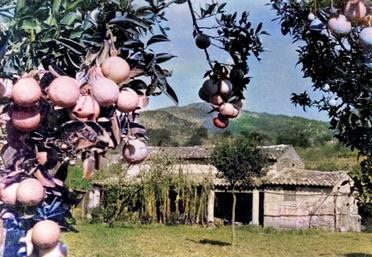How do weather conditions influence the traditional harvesting seasons for olives and almonds in Mallorca?
Similar Topics
mallorca olive harvest
almond harvesting mallorca
mediterranean climate crops
olive harvest timing
almond harvest weather
traditional harvesting seasons
crop weather influence
harvesting season delays
Weather conditions play a significant role in shaping the traditional harvesting seasons for olives and almonds in Mallorca, reflecting the island’s Mediterranean climate. The olive harvest typically begins in late autumn, around November, and extends into December. This timing is influenced by the temperature drops and reduced daylight hours that allow the olives to mature fully while staying firm. Mild autumns with moderate rainfall create ideal conditions for the olives to ripen evenly, ensuring optimal oil quality. Unseasonably warm or wet weather, however, can delay the harvest or affect the fruit’s texture, potentially impacting both quantity and quality.
Almond harvesting, on the other hand, takes place earlier in the year, generally from August through September. The nut pods need dry, sunny conditions for the shells to harden and split open naturally, a crucial step for easy harvesting. Extended periods of heat and low humidity during late summer favor the development of robust almonds, whereas excessive rainfall can delay harvest times and increase the risk of mold or fungal diseases. Additionally, a mild spring with minimal frost is vital during the blossoming period to ensure a good yield, as almonds bloom early and are susceptible to temperature fluctuations.
Overall, Mallorca’s traditional harvesting calendar remains closely tied to the weather patterns, with farmers adapting to seasonal variations year by year. While climate change introduces some unpredictability, centuries of experience have allowed growers to develop flexible practices that protect these valuable crops. The careful timing of harvests not only preserves the quality of both olives and almonds but also maintains the cultural rhythms deeply embedded in Mallorca’s rural landscape.
Almond harvesting, on the other hand, takes place earlier in the year, generally from August through September. The nut pods need dry, sunny conditions for the shells to harden and split open naturally, a crucial step for easy harvesting. Extended periods of heat and low humidity during late summer favor the development of robust almonds, whereas excessive rainfall can delay harvest times and increase the risk of mold or fungal diseases. Additionally, a mild spring with minimal frost is vital during the blossoming period to ensure a good yield, as almonds bloom early and are susceptible to temperature fluctuations.
Overall, Mallorca’s traditional harvesting calendar remains closely tied to the weather patterns, with farmers adapting to seasonal variations year by year. While climate change introduces some unpredictability, centuries of experience have allowed growers to develop flexible practices that protect these valuable crops. The careful timing of harvests not only preserves the quality of both olives and almonds but also maintains the cultural rhythms deeply embedded in Mallorca’s rural landscape.
🧩 Related Questions
Related Question
How does the biodiversity of Mallorca's coastal ecosystems create unique experiences for beachcombers?
Related Question
How long does a typical guided tour from Manacor to Felanitx usually last?
Related Question
How do culinary events and food tourism contribute to Mallorca’s cultural appeal for travelers today?
